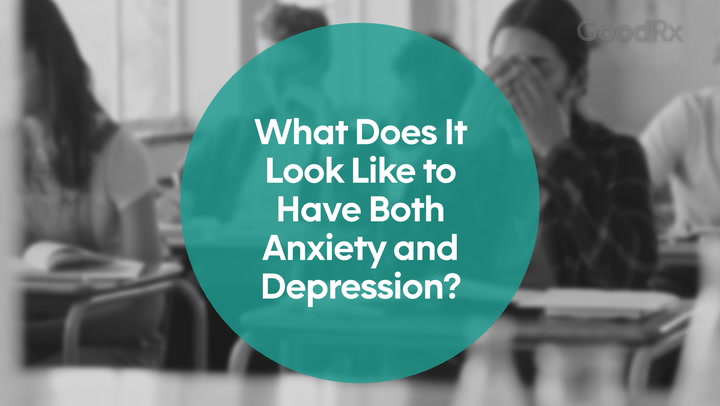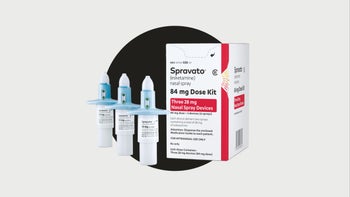
GeneSight Testing: What Can It Tell You About Which Medications Will Work for You?
Key takeaways:
GeneSight is a test that may help to show how you’ll metabolize certain medications for mental health conditions.
Physicians can order this test for patients who have a diagnosed psychiatric condition, such as depression, anxiety, and ADHD.
While the test shows promise, more research is needed to confirm its usefulness.

It may take months or even years for someone to find the right medication to treat a mental health condition such as anxiety and depression. While some people respond well to the first medications they’re prescribed, others may not experience any positive changes. Some may even experience serious side effects like serotonin syndrome or tardive dyskinesia.
This struggle laid the ground for a new kind of testing — genetic testing. The premise is that what may work for one person may not work for another based on their DNA.
Genetic testing may help a provider direct a patient to a medication that has a lower likelihood of causing unwanted side effects based on their genetics. GeneSight may be the most well-known form of genetic testing for mental health-related medications. It assesses the body’s ability to metabolize these types of medications.
Search and compare options
“GeneSight is a psychotropic test that shows you and your provider how your genes may affect medication outcomes,” Jaime Mahler, LMHC, told GoodRx. Though this is an exciting concept, the science is still murky. Here’s what you should know.
How does GeneSight testing work?
It’s fairly simple. Physicians, physician associates, and nurse practitioners are licensed to order the test for you, which can either be performed in a doctor’s office or at home.
If you’re doing the test in an office, your provider will collect a saliva sample by swabbing the inside of your cheek. If the test is sent to your home:
You will swab each cheek with the two cotton swabs provided in your kit (check instructions to ensure you’re doing it correctly).
Next, you’ll place the samples in their designated bags and place them in the box that’s provided with the test kit.
Then, seal the box with the preprinted label.
The last step is to take the box either to a UPS store or drop-off site so that it can be delivered to the lab.
The test results will be given to your provider within 2 days of the lab receiving your sample.
What can a GeneSight test determine?
Kate Hanselman, a board-certified psychiatric mental health nurse practitioner at Thriveworks in Hartford, Connecticut, says that GeneSight explains how your body is likely to metabolize (break down or change) a medication based on certain enzymes your liver creates.
GeneSight analyzes variations found in 14 genes that can affect how the body breaks down or responds to medications. The test results tell you how your body may break down:
Mood stabilizers
Hypnotics
Antipsychotics
Read more like this
Explore these related articles, suggested for readers like you.
The test separates these respective medications into three different columns based on how they could potentially react in your body. These categories include: use as directed (listed in green), moderate gene-medication interaction (yellow), and significant gene-medication interaction (red).
What are the pros and cons of GeneSight testing?
GeneSight testing has its pros and cons. You should talk to a healthcare provider to determine if the test could work for you.
Pros
There might be some pros to using GeneSight testing, but the science is still evolving.
Improved insight
Figuring out which psychiatric medication to take can be overwhelming, explains Mahler.
“GeneSight can provide some clarity for people as they are navigating new territory in their mental health treatment,” she said. “Additionally, for those who have tried multiple different kinds of medications and have struggled to find the right fit, it can provide the prescriber valuable information.”
She added that the test may even support or improve the relationship a person has with their provider by sparking “a dialogue around medication.”
The FDA recently released a report that details when the research supports using pharmacogenetics to help choose medications. The report can help people decide when it’s time to turn to testing for insight.
Empowerment
Mahler also pointed out that it can be empowering for a person to see on paper that the issues they’ve had while taking medications may not be in their head.
“It very well may be linked to the way their body is interacting with the medication,” she said.
A small-scale study in 2012 revealed that participants with major depressive disorder (MDD) who used GeneSight testing to help them find a medication experienced an improvement in symptoms by week 8. That was four times greater than those who received treatment without GeneSight testing. But it’s not clear if these results are valid. The study’s researchers had connections with AssureRx, a GeneSight test manufacturer.
Cons
There are also some serious cons to relying on a GeneSight test to determine which medication you should take. Here’s what to know.
Lack of evidence
Helen Egger, MD, a child psychiatrist and co-founder of children’s mental health app Little Otter, said there isn’t strong enough evidence yet for pharmacogenetic testing to be required at the start of a psychiatric evaluation.
According to a 2017 review, GeneSight testing improved some patients’ outcomes but not others. Researchers also pointed out that most data in favor of GeneSight use is very limited.
Interestingly, a 2021 review article on nearly 1,200 participants with moderate-to-severe MDD (depression) found that those who used GeneSight testing experienced statistically significant improvements in remission rates at week 8, compared to those who received traditional treatment. But by the end of the study, there were reportedly no differences in symptom improvement or adverse medication reactions between either group.
Delayed or wrong treatment
Egger also emphasized how imperative it is for patients and providers to understand what the test results actually mean.
The test results won’t tell your provider which medication will work better for you. And keep in mind, the drugs that appear under the yellow or even the red zone may not actually cause adverse side effects. This means you might miss out on treatments that could get your symptoms under control because you avoid them based on a yellow or red marker.
Hanselman agreed, adding that patients and clinicians often wrongly describe this type of testing as a method to determine which medications will treat your condition best. Simply put, the test provides guidance as to which medications may not metabolize correctly in your body. But, it’s important to take the results with a grain of salt, and instead focus on your symptoms and working with your healthcare provider.
Not FDA approved
The GeneSight test is not FDA approved. This means that the FDA has not done its own review of the product and found it to be successful at doing what it claims to do.
In fact, in 2018, the FDA issued a warning against using genetic tests to determine whether a medication is right for treatment. Specifically, the FDA said the tests are “insufficiently substantiated” (not well-studied) and “could lead to potentially serious health consequences for patients.”
They did note, however, that there may be promise with more research. And in 2020, they followed up their statement with an announcement of a collaborative effort to review the evidence. So far, they have created a table listing medications that are affected by genetics. You can find it here.
Price
Another potential pitfall of the test is that it can be expensive. Most insurance companies won’t cover the full cost of GeneSight testing, except for some Medicaid and Medicare plans. For most people with insurance, it can cost as much as $330 — though it’s likely more for those without insurance. However, there are payment plans and financial aid opportunities available.
The bottom line
GeneSight testing may not be the answer for everyone, and it certainly isn’t required to start medication treatment for mental health conditions. It may even delay starting successful medications.
However, for those who have struggled with side effects (or lack of improvement in symptoms) on previous medications, it can be empowering to gain insight as to why. When it comes to starting or switching psychiatric medications, be sure to speak with your healthcare provider.
Why trust our experts?



Hall-Flavin, D. K., et al. (2012). Using a pharmacogenetic algorithm to guide the treatment of depression. Translational psychiatry.
Health Quality Ontario. (2017). Pharmacogenetic testing for psychotropic medication selection: A systematic review of the Assurex GeneSight psychotropic test. Ontario Health Technology Assessment Series.
Little Otter. (n.d.). A whole family approach to kids’ therapy.
National Institute of Mental Health. (2022). Mental health medications.
Pyzocha, N. (2021). GeneSight psychotropic genetic testing for psychiatric medication selection. American Family Physician.
Recollected Self. (n.d.). Home.
Shuren, J. (2018). Jeffrey Shuren, M.D., J.D., director of the FDA’s Center for Devices and Radiological Health and Janet Woodcock, M.D., director of the FDA’s Center for Drug Evaluation and Research on agency’s warning to consumers about genetic tests that claim to predict patients’ responses to specific medications. U.S. Food and Drug Administration.
Thriveworks. (n.d.). Kate Hanselman.
U.S. Food and Drug Administration. (2022). Table of pharmacogenetic associations.
For additional resources or to connect with mental health services in your area, call SAMHSA’s National Helpline at 1-800-662-4357. For immediate assistance, call the National Suicide Prevention Lifeline at 988, or text HOME to 741-741 to reach the Crisis Text Line.





























